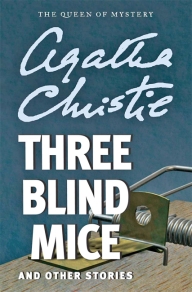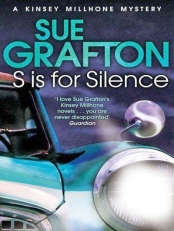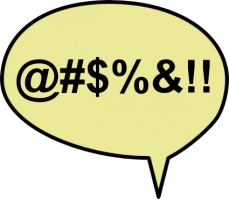Christie, Conan Doyle and 38 more cook up crime and puzzlement
Masterpieces of Mystery and Suspense
Compiled by Martin H. Greenberg
International Collectors Library
651 pages
1988
See below for prices and availability
It’s the late 1950s, Ginger works in a dime-a-dance joint in a rundown part of town, and someone is killing taxi dancers.
When two police detectives show up at the dance hall one night, Ginger falls for the taller one. “…if I’d had any dreams left, he coulda moved right into them.”
The cops only know the killer’s favorite song, the kind of ring he has on one finger and the bizarre way he leaves the dancers’ bodies. With nothing more to go on, they try a stake out. Luckily, Ginger is one sharp cookie and a step ahead of the police. Question is, will she be a step ahead of the serial killer?
This carefully crafted tale, The Dancing Detective, is classic noir by Cornell Woolrich and it’s one of 40 short stories in Masterpieces of Mystery and Suspense, a must for the library of every mystery and short story lover. The stories are short–10-20 pages–and not quite short enough to qualify as flash fiction. But they clearly demonstrate how a skilled mystery/suspense writer can weave a tale, create characters with depth and have you guessing right up to the end–all in a tiny package.
Woolrich’s story is a good example, combing rich characters and dialog with a snappy plot. Aspiring mystery writers: read this story. See how Woolrich creates a thick, gloomy atmosphere and tells us so much about his characters through the way they talk in addition to what they talk about. Woolrich, like many of the authors in the anthology, were or are known as much for novels as well as short stories. And again, like other authors, many of Woolrich’s stories became movies. One of his most famous was Hitchcock’s 1954 Rear Window.
I discovered this collection of gems in a used book store. It can be found easily online. See the note at the end of this review.
Writers from Poe to Sue Grafton and Lawrence Block are represented here. Stories of suspense, mystery and those featuring hard boiled detectives fill the pages. The collection’s anthologist, Martin Greenberg, introduces each story with a brief biographical sketch of the author and a few words about the selection.
The usual suspects are all here: Dorothy Sayers, Earl Stanley Gardner, Agatha Christie, Ngaio Marsh, P.D. James, Ross Macdonald, Ellery Queen, Dick Francis and John Dickson Carr. A few writers not known for mysteries also provide fascinating stories. Greenberg included Mark Twain, Ray Bradbury and Stephen King in the collection.
King’s Quitters, Inc. has Dick Morrison run into an old friend in an airport lounge, back when you could smoke in an airport. The friend has quit the habit for good, he tells Morrison, with the help of an organization that guarantees its results. In this suspenseful story, the method is the mystery and Morrison’s trials trying to stay off cigarettes can be most appreciated by ex-smokers.
In Arthur Conan Doyle’s The Copper Beeches, Holmes and Watson are approached by a governess who lives in a country house and works for an eccentric gentleman. She becomes fearful when her employers ask her to pose for them in certain ways.
Frederick Forsyth’s contribution is, There Are No Snakes In Ireland, a creepy tale of revenge set in Ireland and India.
Rex Stout offers, Help Wanted, Male. One of the longest entries in the collection, the story begins with a man who has received an anonymous letter saying he is about to die. He goes to Nero Wolfe for help. Archie Goodwin figures the man would need to look elsewhere:
“In the years I had been living in Nero Wolfe’s house…I had heard him tell at least fifty scared people, of all conditions and ages, that if someone had determined to kill them and was going to be stubborn about it, he would probably succeed.”
The next day, of course, the man is killed and the police want to know what Wolfe and Goodwin know about it.
If you’re looking for a collection of new crime and detection stories, obviously this isn’t it. The book is 25 years old and many of the stories are decades older than that. If, however, you want to be challenged and entertained by some of the best mystery and suspense writers who ever pounded a typewriter, this is the collection for you, if you can find it.
Note on availability: The book is out of print, but used copies are available from many online sellers. I purchased my hardbound copy (International Collectors Library edition, listed above) from our local library’s used book store. A check of listings for the book at Amazon and other online stores yielded the names of three other publishers and page lengths. Most common was an edition from St. Martin’s Press at 672 pages. Minotaur and Doubleday are also listed as the publisher on some sites. Most available copies are paperback going for $1 or less; shipping charges vary.


 The title is critically important to a book, even more than the cover. I often agonize over my decision. Many years ago, the publisher of my first book changed its title.
The title is critically important to a book, even more than the cover. I often agonize over my decision. Many years ago, the publisher of my first book changed its title.
 Immediately I thought about titling my book, The Unmoving Finger. That’s obviously the state of the finger in my book, and it would be an homage to that most famous mystery writer. But how many people would see the connection? The Moving Finger was published in 1942 and was not one of Christie’s most well-known works.
Immediately I thought about titling my book, The Unmoving Finger. That’s obviously the state of the finger in my book, and it would be an homage to that most famous mystery writer. But how many people would see the connection? The Moving Finger was published in 1942 and was not one of Christie’s most well-known works. In addition to the publishing world, Hollywood keeps its finger on the pulse of its customers, and thus for decades a variety of crime and mystery films have used digital nomenclature in titles. Among the best known is Joseph L. Mankiewicz’s Five Fingers (1952). Based on a true story, James Mason stars as a British spy working for the Nazis and Michael Rennie as a British agent on his trail. Unrelated to the Mankiewicz film, Laurence Fishburne starred in a 2006 thriller called Five Fingers. In addition, a 1959 television series used the same name.
In addition to the publishing world, Hollywood keeps its finger on the pulse of its customers, and thus for decades a variety of crime and mystery films have used digital nomenclature in titles. Among the best known is Joseph L. Mankiewicz’s Five Fingers (1952). Based on a true story, James Mason stars as a British spy working for the Nazis and Michael Rennie as a British agent on his trail. Unrelated to the Mankiewicz film, Laurence Fishburne starred in a 2006 thriller called Five Fingers. In addition, a 1959 television series used the same name. Finally, after research and rumination, I decided that, because it tells what the book is actually about, Dark Ride Deception would be my best title. Fingers crossed.
Finally, after research and rumination, I decided that, because it tells what the book is actually about, Dark Ride Deception would be my best title. Fingers crossed. 

 The modern detective story was born in 1841 with the publication of The Murders in the Rue Morgue in Graham’s Magazine in Philadelphia.
The modern detective story was born in 1841 with the publication of The Murders in the Rue Morgue in Graham’s Magazine in Philadelphia.
 be an obsessed detective who would pursue a criminal to the ends of the Earth. With so many different detectives in print and on television, I wasn’t about to create the ordinary.
be an obsessed detective who would pursue a criminal to the ends of the Earth. With so many different detectives in print and on television, I wasn’t about to create the ordinary.

